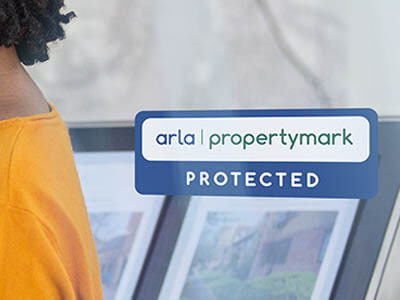TOP TIPS FOR RENTING OUT YOUR HOME
Letting out your property for the first time can be a daunting task and there are many important factors to consider before putting it on the market. From practical advice to legal responsibilities, here are a few top tips to get you started.

Whether you are a first-time landlord or have let properties before, there are some things every landlord should know. Regulations change often which means that if you are not checking the rules, it could result in a landlord unwittingly breaking the law. ARLA ( Association or Residential Letting Agents) have put together some excellent tips to ensure you understand your obligations and responsibilities as a landlord, and how to protect your property, keep your tenants happy and deal appropriately with any issues as they arise.
Preparing your property
As a first step, you should undertake any maintenance which needs to be done. Your property will be more attractive to prospective tenants if it’s had a fresh lick of paint, all repairs are done and if necessary, new flooring has been installed. Next, you should decide whether to let the property furnished or unfurnished. If possible offer both options, so that the agent can market it to a wider audience.
Do your homework
First thing’s first, get to know your market. Research similar properties in the local area and find out how much they are being let for per month. If your rent is set too high, or too low, prospective tenants will steer clear. Think about your target demographic and consider for whom your property would be suitable; for example, young families, students or single professionals. Your agent will be able to advise on this. Once you’ve done your homework, set a competitive price and aim to keep it filled at all times to minimise rental voids.
Know your responsibilities
By renting your home, you’ll go from being a home-owner and occupier to a landlord, and with your new status, comes great responsibility. In the first instance, check that your mortgage allows you to let out your property, as some agreements include caveats to prevent homes from being rented. If you are unsure, speak to your mortgage lender and they will be able to advise you accordingly.
Being a landlord is a 24/7 job, so you should be prepared to receive calls from your tenant at any time during the day or night, as some issues will need immediate attention such as if there is a gas leak or broken boiler. You will be accountable for all repairs and maintenance and taking care of refurbishment of the interior and exterior of the property when required, unless you agree for your letting agent to manage the property – in which case they will deal with all minor issues.
Insurance
Your existing buildings and contents insurer must be made aware of your intention to let your property, as it’s likely that your policy will need to be amended. While specific landlord insurance isn’t a legal requirement, it is advisable as the policy will protect the building, your tenants and your investment as a whole - some policies will also pay out if your tenant misses their rent payments.
Vet prospective tenants
You may wish to meet potential tenants before agreeing to
let them your property, or you may prefer to leave it to your letting agent. Letting agents perform reference and credit checks on potentials tenants
to ensure everything is reliable.
Legal requirements
When it comes to being a landlord, there are more regulations to comply with than you can shake a stick at. To put it into perspective, there are currently around 150 laws that landlords need to adhere to while letting a property. At the start of a tenancy agreement, landlords must carry out right to rent checks in line with immigration laws, protect deposits and have all the essential paperwork in place. Whilst not a legal requirement, it is certainly a very good idea to have a written tenancy agreement so that both you and your tenant understands their rights and responsibilities.
The safety of your tenants is very important, so you
must undertake a Gas Safety check every year. It’s also a good idea to make
sure all electrical appliances and wiring are tested regularly too. Finally, it
goes without saying that your rental property should be fitted with smoke
alarms on every floor and carbon monoxide protectors where necessary.
By law, you will need an EPC (energy performance
certificate) for your rental property, and from 1st April this year,
it will need to be EPC grade E which your letting agent can help you to
organise. You won't be able to market the property without one, so get it
sorted as soon as possible - they're valid for 10 years.
Choosing the right agent
If you want to make the process pain-free, use an agent to manage your property and guide you on everything you need to know. A good agent will take away the stress of finding suitable tenants and also ensure your property complies with any regulatory changes. Propertymark Protected letting agents are experienced and trained professionals who work to a code of practice in order to help landlords manage their homes.
Talk to Sawdye & Harris for peace of mind as your licensed ARLA Propertymark Proteccted letting agent - 01364 65652
SOURCE: ARLA





